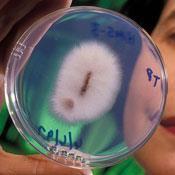
The Food and Agriculture Organization of the United Nations (FAO) is urging countries to step up their monitoring, reporting and prevention of one of the world’s most destructive banana diseases, Fusarium wilt TR4, which recently spread from Asia to Africa and the Middle East.
The disease, also known as Panama disease, has the potential to spread to Latin America and poses a serious threat to the global production and export of the fruit, the FAO said in a statement.
“The spread of Fusarium wilt banana disease could have a significant impact on growers, traders and families who depend on the banana industry,” Fazil Dusunceli, a plant pathologist at FAO, said. “Countries need to act now if we are to avoid the worst-case scenario, which is massive destruction of much of the world’s banana crop.'
In its statement, the FAO recommends banana-growing countries implement the following measures:
• Awareness raising at all levels and adoption of appropriate risk assessment, surveillance and early warning systems;
• Implementation of phytosanitary measures to prevent the spread of the disease through agricultural practices, irrigation and drainage systems, transportation, vehicles, containers, tools or visitors;
• Preventive measures, including quarantines, the use of disease-free planting materials, prevention of movement of infected soil and planting materials into and out of farms, and disinfection of vehicles;
• Capacity building in National Plant Protection Organizations (NPPO) in planning, extension and research, including the use of rapid and accurate diagnostic tools;
• Training of technical officers, producers and farm workers in disease identification, prevention and management under field conditions, and appropriate instructions to visitors.
TR4 has caused significant losses in banana plantations in South East Asia over the last two decades, and has recently been reported in Mozambique and Jordan, the FAO said.
TR4 infects the Cavendish banana varieties, which dominate global trade, as well as other susceptible varieties used for local consumption and markets.
Once the disease is present in a field, it cannot be fully controlled by currently available practices and fungicides.
“We need to raise awareness of this threat, coordinate efforts among countries and institutions for effective implementation of appropriate quarantine measures, and also work with banana producers, traders, plantation employees and smallholder farmers to help to minimise the spread of the disease,” Dusunceli said.
He also highlighted the importance of research in better understanding the disease and developing alternative varieties that are disease resistant.



